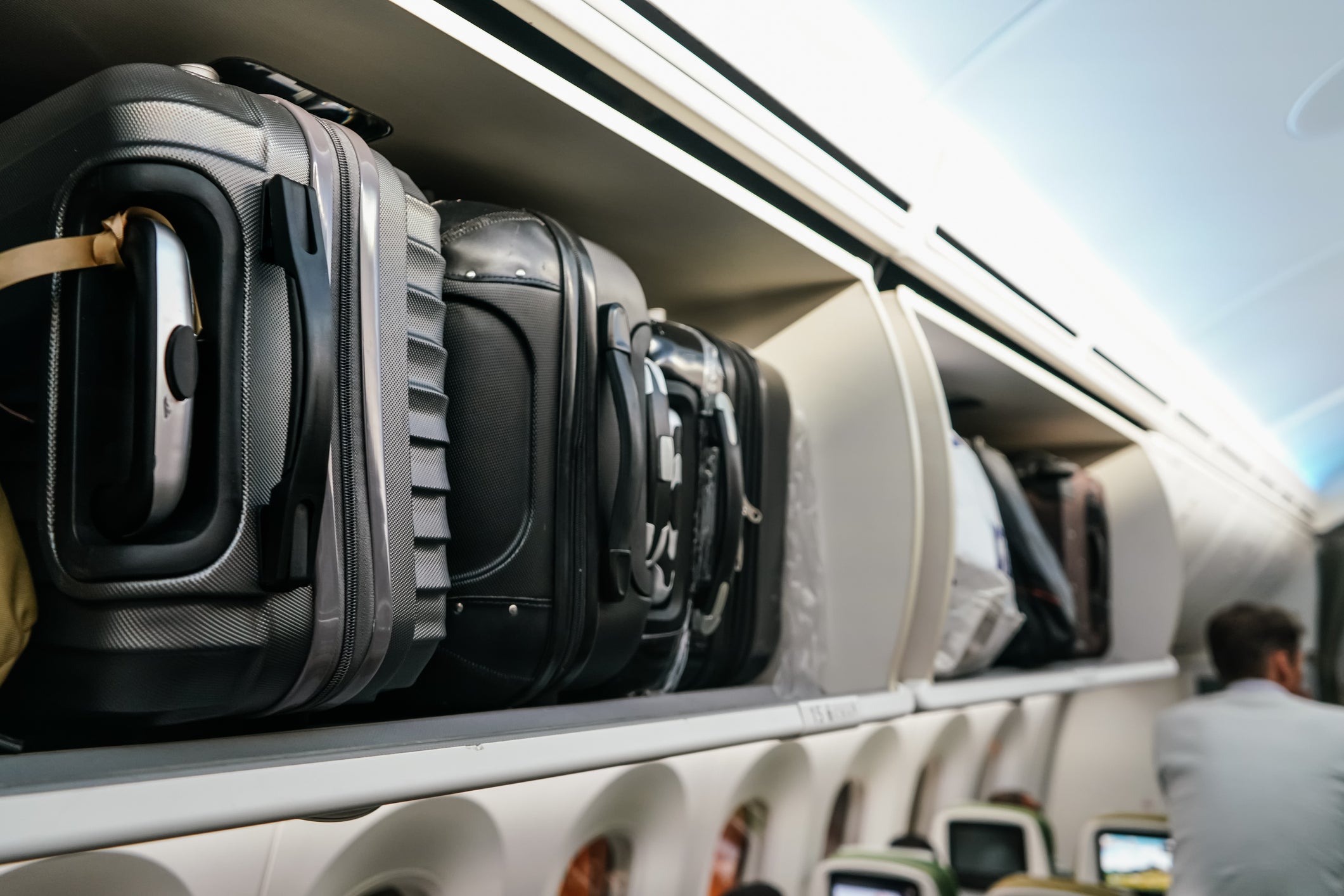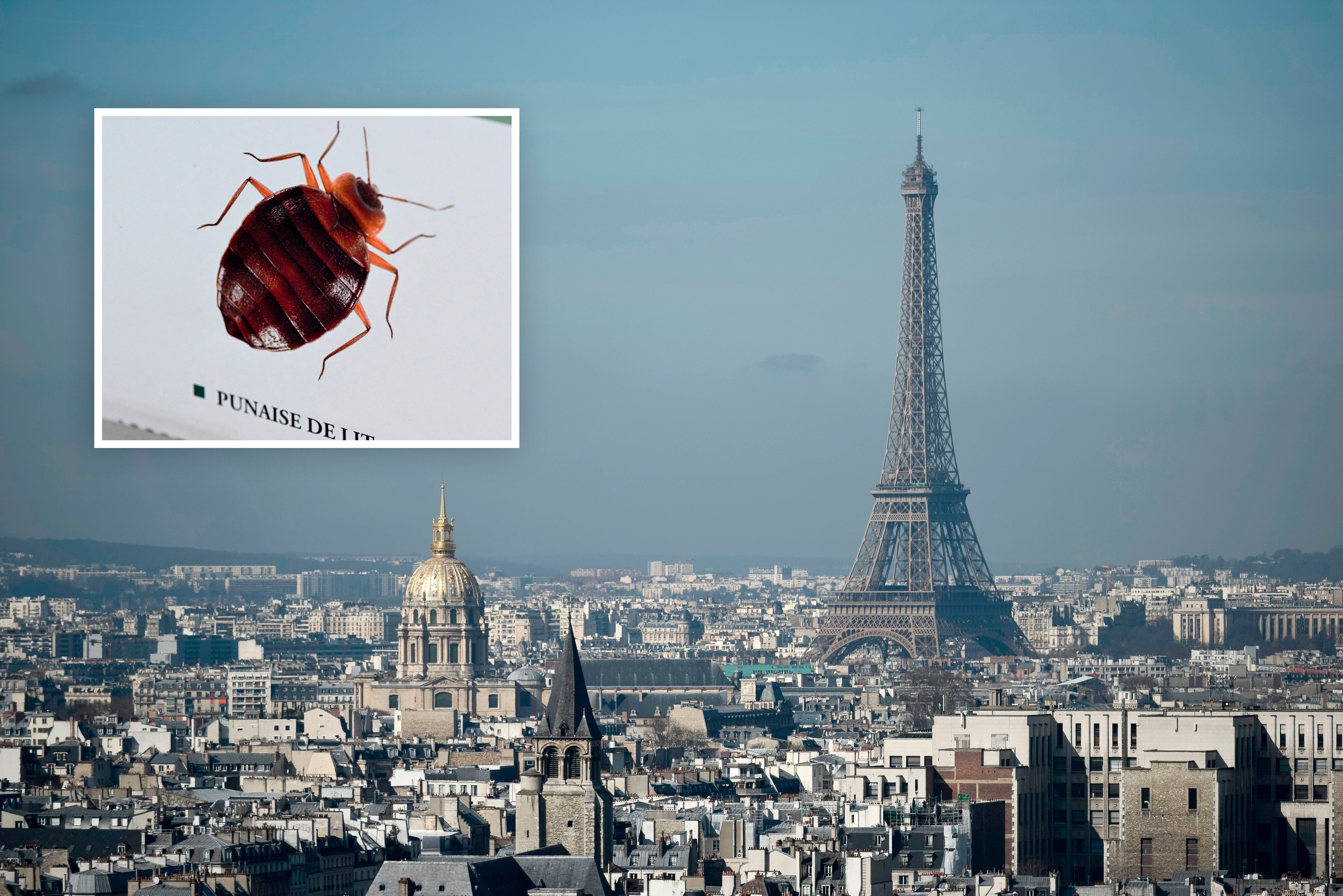Can I keep my bag if I’m asked to store it in the hold?
Simon Calder answers your questions on baggage, bedbugs and botched rail projects


Q I like to travel with cabin baggage only. But increasingly I am finding that some passengers are being told they must surrender their larger hand luggage because there is no room in overhead lockers. What rights, if any, do I have to insist that it stays with me?
BR
A Bluntly, none. The aircraft captain’s instructions are final. He or she will, of course, typically delegate such decisions to cabin crew and ground staff. By extension, what they say goes. If they insist your cabin bag must be stowed in the hold. However, there is normally some room for discussion and compromise, so long as your bag is compliant with weight and dimension rules.
Anyone who has a same-airport flight connection should politely but emphatically explain that fact and ask to be allowed to take their bag on board. Having to consign a bag to the hold will typically mean that the passenger has to pick it up from baggage reclaim and exit through the customs area. So even if their checked luggage is transferred “airside” to their connecting flight, they will still need to go “landside”. I am currently dealing with a case where a woman whose cabin bag was taken from her at Manchester Airport before a flight to Amsterdam – triggering a series of misadventures that led to her losing an entire Antarctic cruise.
Anyone who has prescription medicine in their hand luggage should say so. The normal response from departure gate staff will be that you can keep the luggage with you, though on occasion you may be asked to transfer the medicine to a smaller bag if you have one.
Finally, for safety reasons, you should always declare the fact that your bag contains equipment using lithium batteries, if it does. They potentially comprise a fire risk. Once again, you are likely to be able to take the item on board – while someone else has their bag taken away to the hold. As you realise, this means a wait at baggage reclaim at the destination rather than a fast getaway.

Q The Network Railcard still exists despite its “zone” being defunct. Why does it still exist – and why is there not a national equivalent?
Dan H
A The Network Railcard is a remarkable survivor of a reorganisation of the railway decades ago. In 1986, British Rail brought all its train services in London and southeast England into a single brand, Network SouthEast. As part of the restructure, a discount card valid on off-peak trains within the region was introduced. The revolutionary aspect: you did not need to be young, old or travelling with a family in order to qualify for a 34 per cent discount on trains in the region, outside rush hour.
While the exact boundaries have shifted over the years, the card basically covers all trains in the southeastern corner of England, and extends on other lines as far as Exeter, Worcester, Banbury, Northampton, Bedford, Huntingdon, King’s Lynn and Harwich.
After privatisation in the mid-1990s, Network SouthEast was no more. The reason the card continued and still exists (and is now also available digitally for smartphones) is, I believe, because taking a benefit away is always unpopular.
You raise a very good point about the possibility of a national railcard for people aged 31-59 (everyone else qualifies for a discount card on grounds of age). A card offering one-third off fares for off-peak journeys across Britain has often been proposed. The refusal to try out a national scheme is tied up with the stubborn refusal of the Treasury to risk disruption to rail revenues.
The chancellor is averse to any radical change where it is not clear exactly what the consequences will be. A national railcard would need to generate extra journeys and additional revenue (including from sales of the card itself) to be regarded as a success. Without that certainty, the government is unlikely to sign off on a national railcard. That is also the reason much-overdue fares reform keeps being promised but never delivered.
I cannot see that picture changing, so all you can do is see if the Two Together (with a named fellow traveller) railcard works for you; or, if you are travelling in Scotland and are 50-plus, join Club 50; or choose another mode of travel.

Q My stepson sent me a quote from Twitter [X] by you stating that the prime minister had said there were going to be 20 trains per hour running between Sheffield and Leeds. If you had bothered to check the document issued by the Department for Transport, it states that, after electrification, there would be three or four express trains instead of one. That increases the number of trains to seven or eight shared between the two routes between the two cities.
Terry H
A I have read Network North: Transforming British Transport, issued shortly after Rishi Sunak announced he was cancelling the HS2 project beyond Birmingham. But before studying the 40-page document, I watched a one-minute video in which the prime minister says, unequivocally: “We can quadruple the number of trains from Sheffield to Leeds.” That is what my tweet was based upon.
It takes a few moments to check the schedules and see that at present five trains per hour run between the two cities, off-peak. Since Mr Sunak did not add any qualification, such as “express”, I contend that it is fair to conclude he meant there will be 20 trains per hour. The people of South and West Yorkshire would no doubt be thrilled with an average of one train every three minutes – a frequency to match the London Underground.
As you say, though, the actual plan turns out to be to increase the number of fast trains – currently just one per hour during the day – to three or four. That is a useful ambition, and I look forward to the happy day when this key line is electrified. But it is not what the prime minister said. When promising transport improvements, especially in the aftermath of a decision that will be devastating for many, details matter.

Q I am booked to travel to Paris next weekend for a short break. The outbreak of bedbugs is worrying me. Do you think I could cancel and get my money back?
Sue W
A I agree the reports are worrying, but I fear you have no chance of a refund from your travel or accommodation provider. Bedbugs are small insects (around 5mm long) that are rarely happier than when feasting on human blood – causing itchy bites that can be painful. The NHS warns cimex lectularius, as they are known medically, can hide on bed frames, mattresses, clothing, furniture, behind pictures and under loose wallpaper. Its US counterpart, the Centers for Disease Control (CDC), says: “Bedbugs, a problem worldwide, are resurging.”
Reports from Paris and more widely in France talk about an infestation from bedbugs taking hold, with the parasites apparently increasingly resistant to insecticide. They can be transported inadvertently in travellers’ luggage. Paris is the capital of the world’s most visited country, so bedbugs have a fair chance of a trip to the city.
It is difficult to know the extent by which social media may have exaggerated the current problem. But assuming there is genuinely a growing public health threat from the insects, I still cannot see any prospect of the UK government warning against travel to France as a result. Such a move is reserved for very serious health threats. The NHS says with the rare exception of a severe allergic reaction there is no reason to worry if you are bitten. Unlike mosquitoes, which also enjoy dining out on “blood meals” from humans, bedbugs do not transmit disease. “Bites usually clear up on their own in a week or so,” the official advice says.
Some fellow travellers say you should look for online reviews about your intended place to stay and see if bedbugs are mentioned. I am afraid that even if they are, you will not be in a position to insist on a refund. All you can do is travel to Paris and, on arrival at your accommodation, inspect the room for any sign of the nasty creatures. I accept that is not a great way to begin your stay. Check in the fold of mattresses and sheets. Tell-tale signs, according to the CDC, include “bedbugs’ exoskeletons after moulting” and “rusty–coloured blood spots due to their blood-filled faecal material that they excrete on the mattress or nearby furniture”. Nice.
If you can prove the room is infested with bedbugs, you can reasonably expect a refund or a rebooking elsewhere.
Email your question to s@hols.tv or tweet @simoncalder
Join our commenting forum
Join thought-provoking conversations, follow other Independent readers and see their replies
Comments
Bookmark popover
Removed from bookmarks